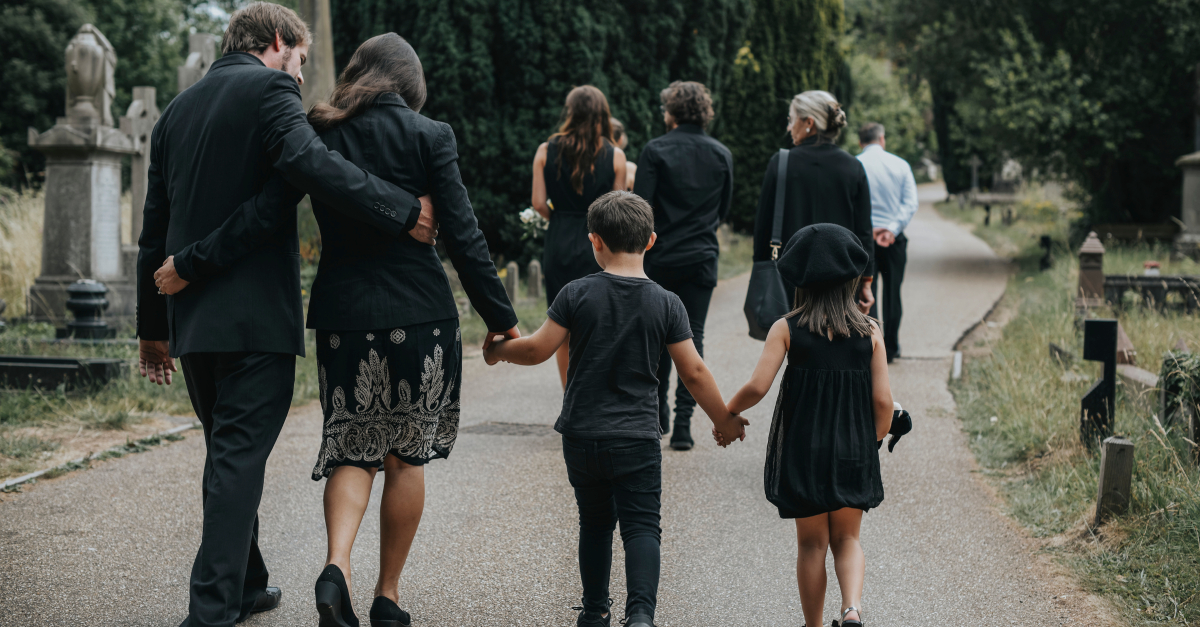5 Reasons Suffering Is Both Terrible and Meaningful

At my church, every counselor’s schedule is full. We have an incredible team of Pastors, Lay Pastors, and volunteer counselors, yet we still have way more people needing help than we have the resources and people to help them. Like most churches, companies, and communities, we’re just now starting to feel the long-term effects of a society grasping with the challenges and dramatic changes of COVID on just about every facet of life. We may be more than a year in, but it’s felt like a decade for most people. People aren’t just having problems. They aren’t just in pain. They’re suffering.
But suffering is unique in a sense. Somehow, it’s one of the most powerful ways God gets our attention. He may not cause suffering, but He absolutely doesn’t waste it either. He uses it to draw us closer to Him. No one prays for suffering, wants to go through suffering, or sees the point of suffering when they’re going through it — but everyone on the planet will suffer. Saint Augustine was right when he said:
“God had one Son on Earth without sin, but never one without suffering.”
You will suffer, I will suffer, we’ll all suffer at some point. You may be suffering right now. My encouragement is to help you see how God uses the uniqueness of suffering to show us that it’s not just terrible but meaningful. The home of “and.”
(Note: These are taken from the Chapter “The Blessing of Suffering” in the study guide: Paradox: Discovering the Truth about You and God in the tension of contradiction.)
Suffering is simultaneously terrible and meaningful because of the word in the middle: “and.” Suffering is the home of “and” because it often has at least two purposes in a person’s life. Below you’ll find five reasons that suffering is both terrible and meaningful.
1. Suffering brings confusion about how to function in the world and clarity on who or what is truly valuable.
When we lose something or someone that means the world to us, our world is dramatically changed. Some moments of suffering bring hard questions like:
“How do I go on living now that they’re gone?”
“How will I provide for my family after being let go from my job? Will we have to move?”
“I can’t believe they moved out and took the kids with them; what do I do now?”
It’s confusing and incredibly challenging. But there are also moments of clarity. We may have a new respect for the value of life. We may question what to do with the rest of our life and how it can be dedicated to God. We may realize that a career change might be a good thing as we’ve been thinking about trying something new. A move may bring a freshness to our life that’s been missing. We may realize that our attitude, anger, or actions are the reason they left and that correcting each of those has been a long time coming. Maybe if we win them back, our relationship will be a whole lot better.

Photo credit: © Getty Images/Prostock-Studio
2. Suffering causes us to close our arms around ourselves in despair and wrap them around others for comfort.
Many of us feel incredibly alone when we suffer. We feel like the world is closing in on us, everyone’s against us, or nobody care. We may think that if we’re by ourselves for a while, we’ll “get through it,” “manage it,” or even “toughen up” as a result. We aren’t built to be alone when we suffer. It can be crushing! Even Jesus asked His disciples to be near Him and stay awake and pray as He neared the hour of his arrest and eventual crucifixion.
The simple fact is, we need people around us. We may need some moments alone to pray, to cry, to lament, or to be angry. But what we need more than anything else are for others to be with us, cry with us, encourage us, be angry with us, and wrap their arms around us because we need to feel loved and cared for in the midst of suffering.
3. Suffering is the place where loved ones are lost and friends are found.
The loss of someone we love is probably the most painful experience in life. The loss of their laugh, presence, hugs, and love makes the world a darker, lonelier, almost uninhabitable place. If they knew Christ, there is a comfort that makes it bearable and even hopeful. You’re glad they’re with Christ in Paradise. You’re glad they no longer have to suffer if they were ill or their last days were particularly hard.
You’re glad you’ll get to see them again — but you’ll miss seeing them tomorrow and all the days after.
One of theist parts of being a Christian is to realize that we don’t grieve like the rest of the world (1 Thessalonians 4:13-14). We have an amazing hope in Christ that life goes on. And Christ has given us a body of believers, His Church, to reinforce that hope. What’s surprising is how many new friendships, lifelong connections, and brothers and sisters in Christ are found when someone we love dies. Somehow through our pain, Christ heals us by bringing in new people to comfort us and walk with us.
We may have lost someone we love, but we also gain new people to love and who love us.

Photo credit: ©GettyImages/Rawpixel
4. Suffering is where God is blamed and sought after.
When you believe in an all-powerful God, you also believe that God had the power to stop your suffering from happening in the first place.
We look back and ask God why He didn’t stop it. Why it happened to you, to them, or to someone else. And if we go down this path for long enough, we begin to point the finger at God as the culprit. But allowing suffering and causing suffering are very different.
In the book of Job, God allows Satan to cause suffering to Job. God knew Job’s character and faithfulness in all circumstances. The suffering was painful, but rather than blaming God and cursing Him as Job’s wife suggests (Job 2:9), Job simply says, “Shall we accept good from God, and not trouble?”
Job’s story is complex, but what is incredibly simple and admirable is how he praises and seeks God even in the midst of the suffering God didn’t prevent (Job 1:20-22). Job had the perspective we should all have: In suffering, we should seek God because He is good, not blame God because we’re not sure He is anymore.
5. Suffering is where people lose their faith and find it.
Lastly, and this is a big one, we’ve all probably wondered or asked out loud: “Why does God even allow suffering?” It’s a classic way that many people use to refute the existence or the goodness of God. “Why would a good God allow bad things to happen to people?”
People lose their faith when they suffer because they believe that God doesn’t care about them, never has, or never existed in the first place. Somehow we’ve gotten the notion that suffering is always bad and it’s all God’s fault. Scripture tells us that human beings are the cause of suffering, even from the beginning of creation. When we sinned against God, pain, death, trauma, loneliness, fear, and all sorts of other mechanisms of suffering were possible. They weren’t a part of God’s good creation. And yet! Suffering is also where people find their faith. How? Because they either read about it in scripture, are reminded of it in church, or realize for the first time that God suffered for them. For you, for me, and for anyone who chooses to believe in Him.

The suffering of Jesus was terrible, but it was also significant and meaningful. God used the suffering and death of Himself to eradicate the suffering of people someday, for good. Through His suffering, death, and resurrection, we find hope, meaning, and faith. We didn’t deserve it, but that’s what makes Jesus’ suffering so meaningful to us. Paul captures it well in Romans 5:6-8:
You see, at just the right time, when we were still powerless, Christ died for the ungodly. Very rarely will anyone die for a righteous person, though someone might dare to die for a good person. But God demonstrates his own love for us in this: While we were still sinners, Christ died for us.
While we were suffering, powerless, and hopeless, God died for us. Not because we’re good, but because He is. Here are three last points:
1. If you’re suffering in some way right now, please don’t go it alone. Find a local church, or tune in to ours on Sundays and tell us that you need help in the chat. We’d love to pray with you, for you, and connect you to help. Also, I recently did a message on suffering that may be helpful; you can find that here.
2. Not all suffering is created equal. You don’t have to lose someone to suffer. Verbal, physical, psychological abuse, depression, loneliness, confusion, lack of purpose, fear, and myriad other things can cause suffering. Get help, get in community, and give your suffering and heartache to Christ. He can take it — in fact, He did.
3. I’d like to leave you with one last Scripture that I hope will help you this week:
Matthew 11:28-30 “Come to me, all you who are weary and burdened, and I will give you rest. Take my yoke upon you and learn from me, for I am gentle and humble in heart, and you will find rest for your souls. For my yoke is easy and my burden is light.”
Photo credit: ©Getty Images/Marcos Calvo
Kile Baker is a former Atheist who didn’t plan on becoming a Christian, let alone a Pastor, who now writes to try and make Christianity simple. Kile recently wrote a study guide to help people “look forward to and long for Heaven.” You can get one on Amazon here. He also writes at www.paperbacktheologian.com. Kile is the grateful husband to the incredibly talented Rachel, Dad to the energetic London and feisty Emma and Co-Lead Pastor at LifePoint Church in Northern Nevada. He single handedly keeps local coffee shops in business.
Originally published October 27, 2021.




